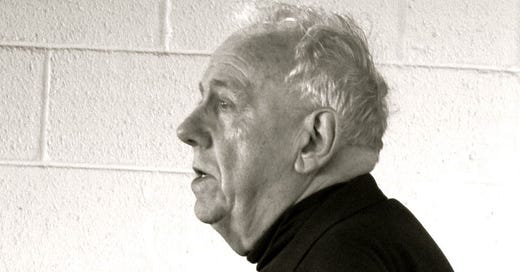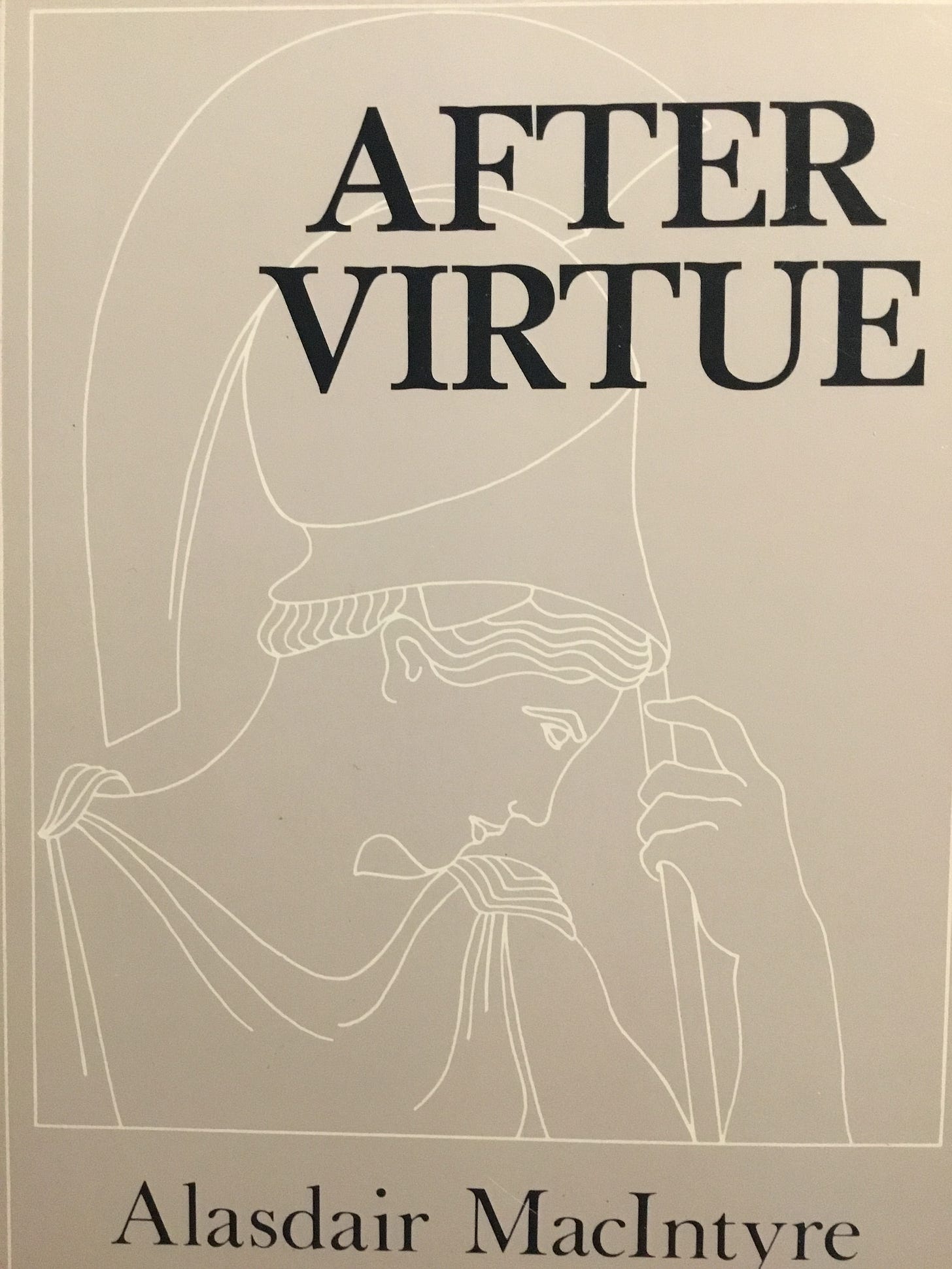Hello all.
It is being reported that philosopher Alasdair MacIntyre has passed away.
I cannot overstate the impact that MacIntyre had on my worldview, my career, and my intellectual journey. As an undergraduate, I majored in psychology, but also took every philosophy course that George Fox College (now George Fox University) provided; if they had offered a philosophy major in the mid 90s (they still don’t, by the way), I would have happily double-majored. In my attempt to satisfy my ravenous appetite for philosophy, one of the professors (Phil Smith, to whom I am eternally indebted) ran a group Independent Study (which sounds like a contradiction in terms) in which students would select a work of philosophy, present each week on the chapters that we had read, and together discuss the ideas in the readings. One of the other students, for example, did Gödel, Escher, Bach, so I got introduced to ideas about recursion and self-referencing. When I took Professor Smith’s ethics course earlier, I had been fascinated by virtue ethics, and had asked him for more. So I was assigned Alasdair MacIntyre’s After Virtue (2nd Edition).
After Virtue has the unique status of being at the same time an academic game-changer in the field of philosophy, and also readable. I, an undergraduate psychology student, was able to follow the major ideas of MacIntyre’s book. So for those of you who are not professional philosophers (which is probably almost everyone), don’t be afraid to pick this one up. There will be nuances and references that professional philosophers will get and the rest of us will not, but overall it is a “doable” read.
After Virtue got me thinking about virtue and human flourishing. It stayed stuck in my head, but what relevance could virtue ethics have to a psychologist? I was busy getting a doctorate in psychology, focusing on terror management theory and on the psychology of religion. But then along came the positive psychology movement, and suddenly psychologists were talking about flourishing. Then from the positive psychologists we got The CSV, and from Blaine Fowers we got Virtue and Psychology, and now virtue ethics was very relevant to psychologists. I brushed off my copy of After Virtue, looked up MacIntyre’s other publications, and dove headfirst into the psychology of virtue and flourishing, starting with an article on theology and positive psychology, and continuing with my first book, focusing on psychology, the virtues, and the martial arts. I am still going full speed ahead with these ideas, with MacIntyre serving as my springboard for investigations into how ideas about human flourishing relate to psychology, culture, religion, politics, the self, personality, morality, and more.
Thanks to MacIntyre, I learned to look behind the faces that theories present to the world, and ask what they are assuming about basic human nature, ideal human functioning, and the ways and means of developing toward those ideals. Years ago, I contacted Phil Smith and thanked him for assigning me After Virtue and getting me started on this journey. I never thought to reach out to Professor MacIntyre, assuming perhaps that he was too far above an academic nobody like me to be bothered with my fanboyish praise, and now I will never have the opportunity. But I will forever be grateful to MacIntyre for his contribution to the world of ideas, and for shaping the way that I think about the world.
My colleague Christopher Kaczor studied under the man himself, and has written a remembrance of MacIntyre’s life and work. Please read it.




